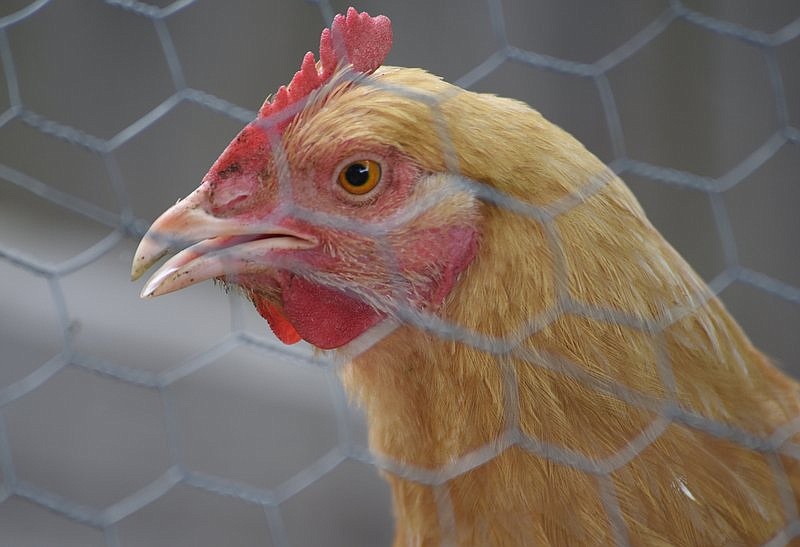A revised chicken ordinance eliminating the half-acre minimum lot size requirement for keeping chickens within Red Bank city limits passed Tuesday on first reading by a 3-2 vote of the City Commission.
To become law, the ordinance must pass on second vote at the commission's next meeting, at 6 p.m. Feb. 21.
Commissioners Pete Phillips and Jamie Fairbanks-Harvey were opposed to the amended ordinance.
"I think there needs to be some more education," Phillips said before voting no. "I ain't against chickens. I'm against my neighbors having chickens. I moved into the city to get away from chickens."
Fairbanks-Harvey said she is still seeking input from residents and is concerned about predators such as coyotes that chickens could attract to neighborhoods.
Mayor Hollie Berry said in her two years as an elected official she has been approached by a number of citizens who had a desire to keep chickens but were prevented from doing so by the minimum lot size requirement, even after it was reduced about two years ago from 2 acres to a half-acre. Most of the residents she's spoken with who want to keep chickens have lots around one-third of an acre, she said before the vote.
(READ MORE: Red Bank residents request change in requirements for keeping backyard chickens)
The city did not have any residents apply for chicken permits in the years after the lot size requirement was reduced to a half-acre, she said.
"I'm cautiously optimistic that we will not be flooded and inundated with applications after this change either, but merely that a few particularly passionate individuals will be able to access this," Berry said.
Among the other changes to the ordinance is the addition of information about the dangers of keeping chickens, Codes Enforcement Officer Eddie Clinton told commissioners at their Feb. 7 work session.
The new ordinance also requires coops to be located at least 10 feet from the main structure on the chicken owner's property, he said.
"In my research of chickens, I found where some people actually put them on their back porch," Clinton said. "That's very dangerous. We want to address that now so we don't have to address it later."
As with the current chicken ordinance, residents who choose to keep chickens on their property still must maintain minimum setback requirements of 25 feet from neighboring properties.
(READ MORE: Raising chickens a popular pandemic pastime in Chattanooga area)
Other additions to the ordinance include an annual chicken permit renewal requirement and details on chicken waste disposal methods, such as composting or placing in the trash for city sanitation workers to collect.
To acquire an initial or renewal permit, citizens must submit an application and have their property inspected by the city code enforcement staff.
The purpose of the permit renewal requirement is to ensure that chicken owners are still meeting the setback requirements and that coops are in working order, Clinton said.
Chickens must remain in their coop at all times, but coops can be moved around as long as setback requirements are met, he said.
Chickens are limited to properties in the R1 and R1A single family residential zones in both the new and current ordinances.
The R1 zone comprises 2,651 parcels and the R1A zone comprises 1,402 parcels, which together make up about 70% of the city's residential districts, Clinton said.
Some properties zoned R1 or R1A are small enough that property owners would not be able to meet the setback requirements, he said.
Commissioner Pete Phillips said he is concerned about the time city staff may have to spend inspecting properties of potential chicken owners and whether the $50 permit fee would cover the cost.
He also questioned whether chicken owners would be charged fines for not complying with requirements, adding that many people in the city now own chickens without permits.
"If we're not enforcing it now, I don't see how we're going to enforce it," Phillips said.
Chicken owners who do not comply with requirements could have their permits revoked or be cited before the city's administrative hearing officer and be fined up to $500, Clinton said.
If neighbors of a chicken owner want to file a complaint with the city, they may do so anonymously, he said.
Contact Emily Crisman at ecrisman@timesfreepress.com or 423-757-6508.
